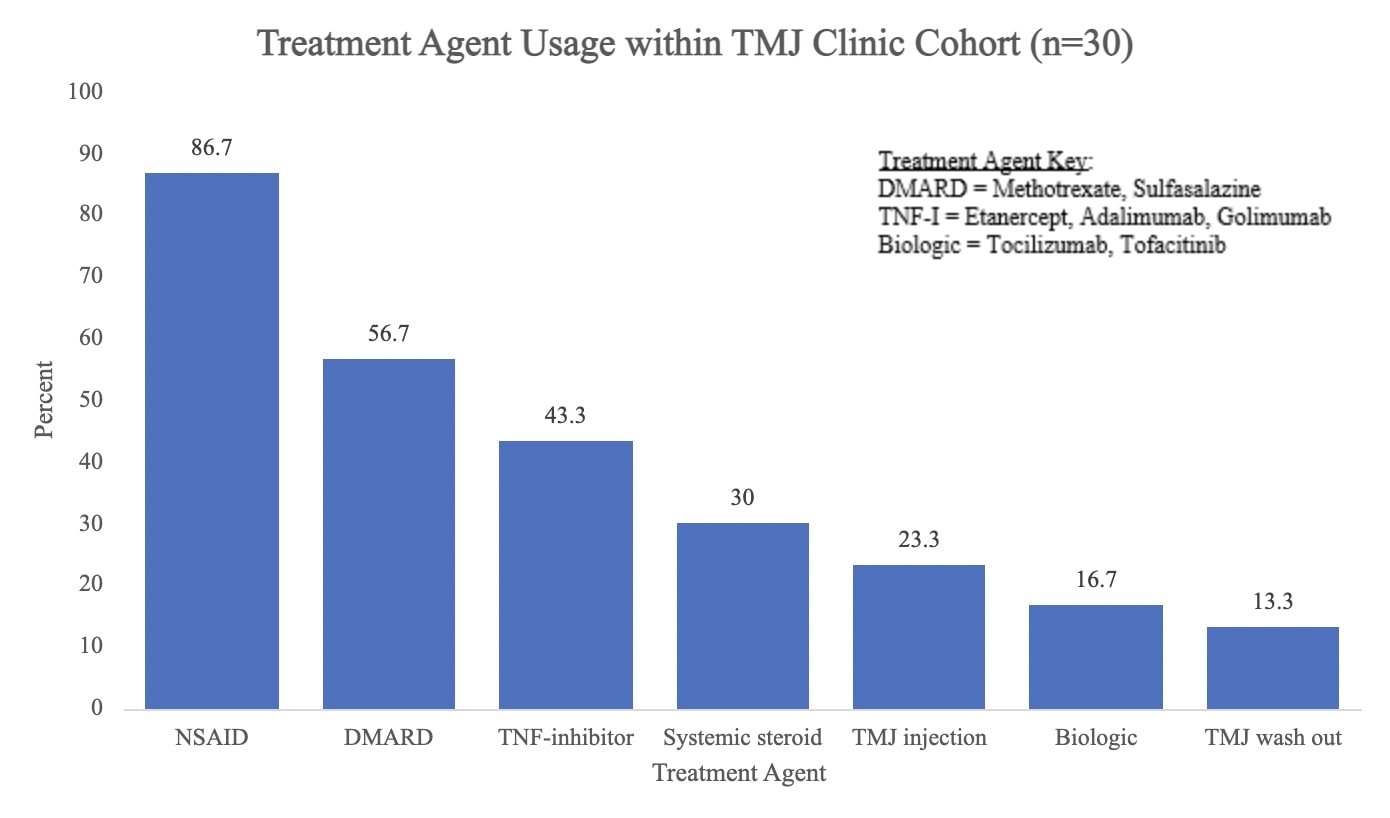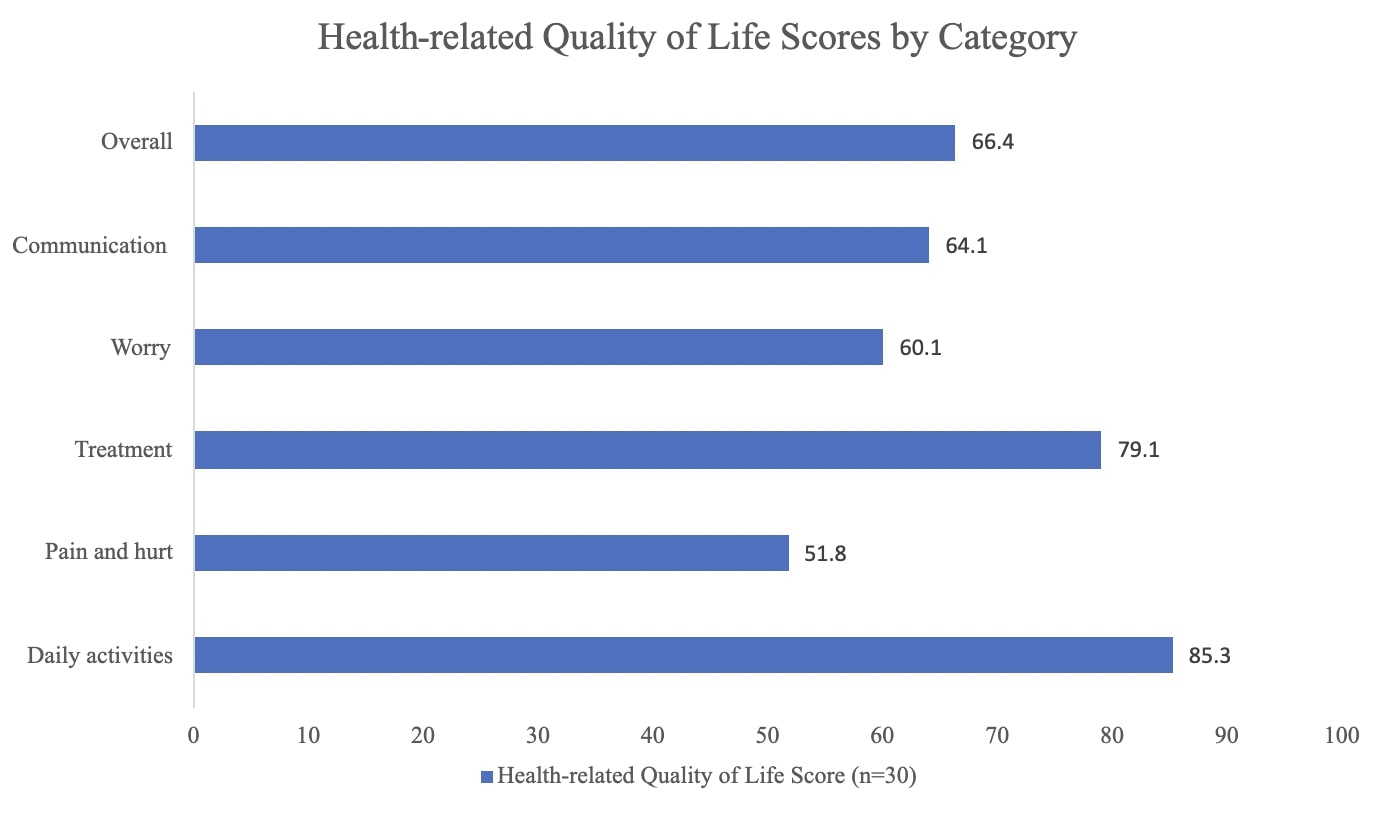Session Information
Session Type: Poster Session A
Session Time: 9:00AM-11:00AM
Background/Purpose: Temporomandibular joint (TMJ) arthritis, a condition frequently overlooked in patients with JIA, can result in joint damage if not promptly treated. Such damage presents as pain during joint movement and chewing, as well as mandibular growth abnormalities. Due to minimal symptoms in the early stages, timely diagnosis of TMJ arthritis is challenging without early imaging, often leading to joint damage before detection. This study aims to establish a registry specifically focusing on JIA patients with TMJ involvement. The registry operates within a multidisciplinary clinic, involving pediatric rheumatologists, neuroradiologists, oral maxillofacial surgeons, physical therapists, orthodontists, and pediatric dentists.
Methods: The study enrolled JIA patients referred to the multidisciplinary TMJ clinic for suspected TMJ involvement. Data collection took place during routine care visits, and information was obtained through a combination of prospective and retrospective chart reviews, as well as patient-reported outcomes. The data analyzed in this study were extracted from the participants’ initial visit records. Quantitative data was analyzed using descriptive statistics.
Results: Data from the multidisciplinary TMJ clinic were reviewed involving (n=30) 7 males and 23 females aged 7 to 20 years. The most common diagnoses among participants were polyarticular JIA (30%), oligoarticular JIA (23.3%), and enthesitis-related arthritis (16%) [Figure 1]. The primary reason for referral to the TMJ clinic was jaw, muscle, or neck pain, reported by 86.7% of participants. Before the referral, participants had, on average, tried 2.8 different treatment agents [Figure 2]. Furthermore, 23.3% of participants had received prior TMJ steroid injections, and 13.3% had undergone a prior TMJ wash-out. Among the 30 patients, 21 had obtained an MRI of their TM joint within 12 months of entering the clinic. During the study visit, participants completed the Pediatric Quality of Life Inventory, a measure of health-related quality of life (HRQOL). The responses were transformed to a 0-100 scale, with higher scores indicating better HRQOL. The average score across all categories (daily activities, pain and hurt, treatment, worry, and communication) was 66.4 [Figure 3]. Participants also reported difficulties in performing various activities based on a patient-specific functional scale. A total of 56 activities were identified, and on average, patients scored 4.9 per activity on a scale of 0 to 10, with 0 indicating complete inability to perform the activity. Overall, participants reported an average pain intensity score of 3.4/10, and 64% of patients reported affected functionality of their jaws. Additionally, 8 out of the 30 study participants expressed concerns regarding body image.
Conclusion: This data offers valuable insights by capturing outcomes from patients with TMJ arthritis. Our findings indicate that these patients endure TMJ-related pain and experience joint dysfunction that affects their quality of life. The challenges associated with TMJ arthritis highlight the importance of this registry and the ongoing observation of this clinic’s cohort.
To cite this abstract in AMA style:
Tarvin S, Rakestraw A, Lee J, Matthews N, Ballinger S, Sparks C. Establishing a Multidisciplinary Registry for Temporomandibular Joint Arthritis in Juvenile Idiopathic Arthritis: Insights into Patient Outcomes and Management Challenges [abstract]. Arthritis Rheumatol. 2023; 75 (suppl 9). https://acrabstracts.org/abstract/establishing-a-multidisciplinary-registry-for-temporomandibular-joint-arthritis-in-juvenile-idiopathic-arthritis-insights-into-patient-outcomes-and-management-challenges/. Accessed .« Back to ACR Convergence 2023
ACR Meeting Abstracts - https://acrabstracts.org/abstract/establishing-a-multidisciplinary-registry-for-temporomandibular-joint-arthritis-in-juvenile-idiopathic-arthritis-insights-into-patient-outcomes-and-management-challenges/



